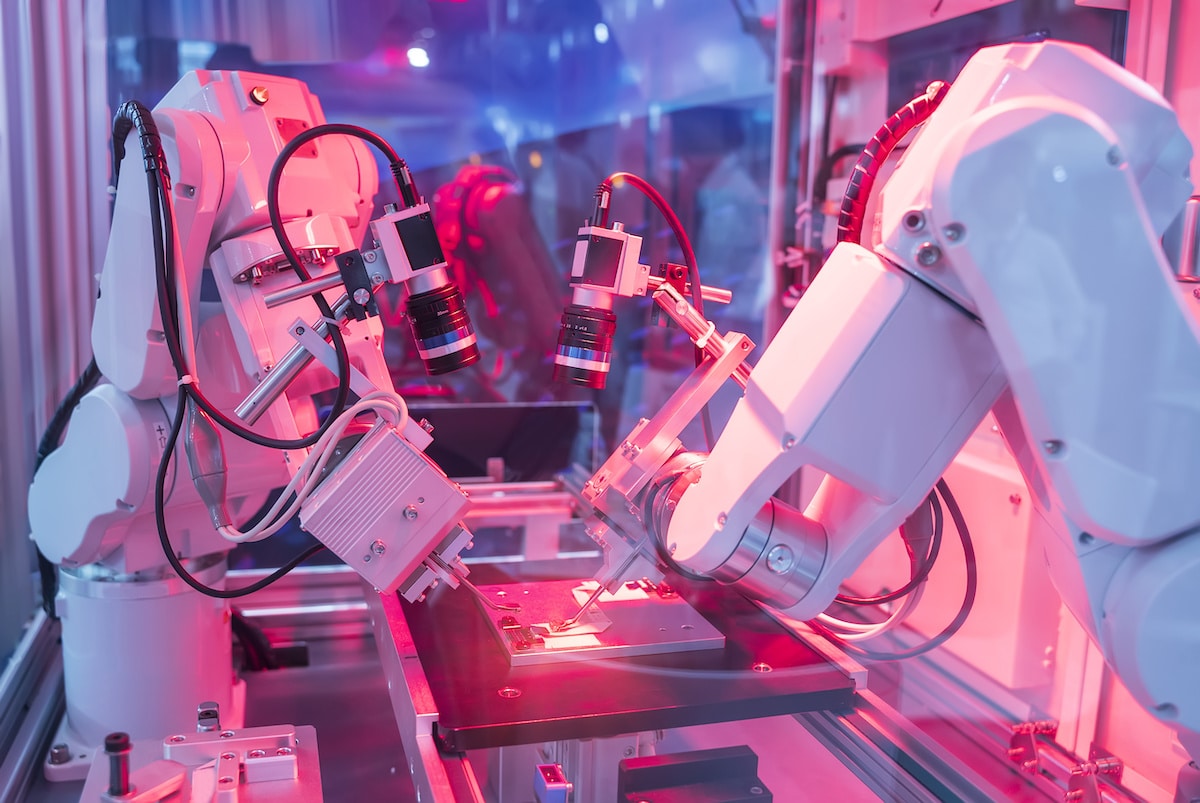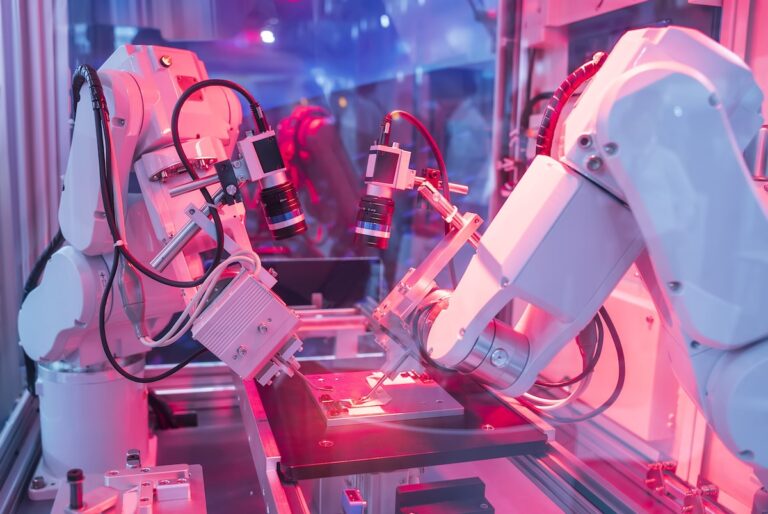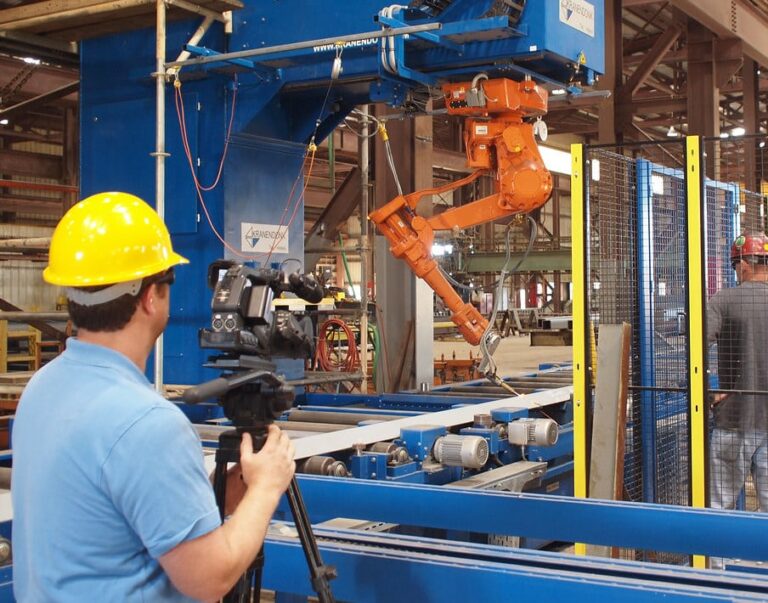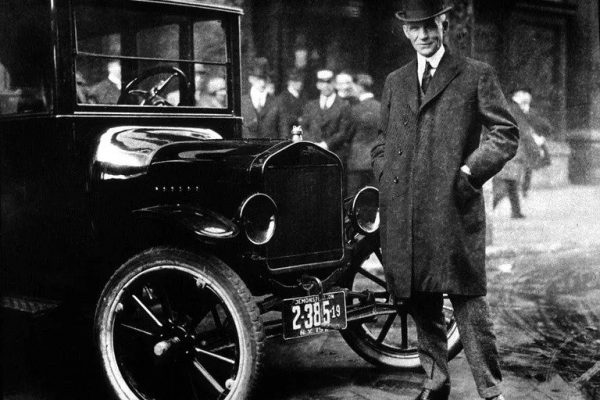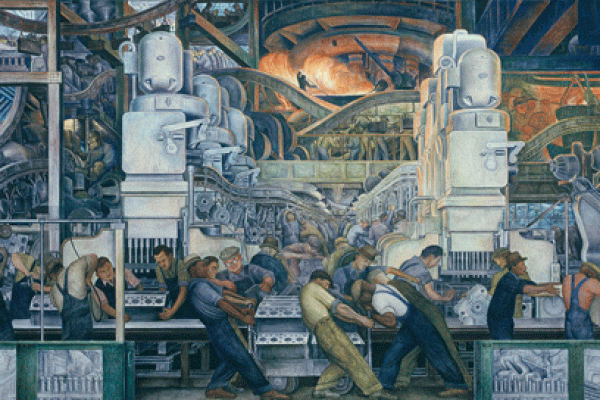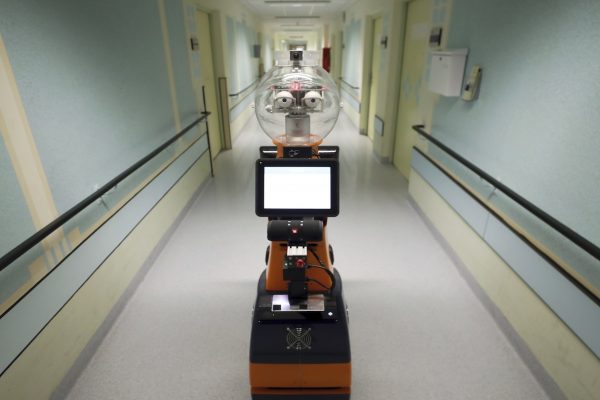To fear AI or to embrace it? That is the question many are asking as machine learning and large language models excel at accomplishing ever more sophisticated tasks.
Of the reasons for fear, perhaps the most frequently cited is that AI will put vast swaths of people out of work. But this is also a possible reason to embrace it: in a just world, productivity-enhancing technology would eliminate onerous jobs and create more leisure and prosperity for everyone. Indeed, for economist Daron Acemoglu, AI’s implications need not be dystopian. In the past, rising productivity associated with technological innovation has promoted good jobs and higher wages, foiling predictions of “technological unemployment.” This virtuous circle was not the inevitable result of market forces, however. As Acemoglu points out, strong labor market institutions and a democratic political system helped ensure that the technologically produced prosperity of the post–World War II era was shared. “The argument that we should rely on the market for setting the direction of technological change is weak,” Acemoglu writes. “Government policy, funding, and leadership are critical” if we want to direct AI’s development toward progressive rather than dystopian ends.
One of the ways that AI can be guided toward more benevolent applications is by focusing on its potential to complement rather than replace labor, argues economist Erik Brynjolfsson. Responding to Acemoglu, Brynjolfsson writes that “when technology complements labor, wages tend to rise, creating more broadly shared prosperity.” Harnessing AI’s potential to “augment” labor requires working with “managers, entrepreneurs, worker representatives, and other business leaders” to answer the question “how can technology and people work together to create novel sources of value?”
With respect to workers, this means providing them with more on-the-job training, writes city planning scholar Nichola Lowe, something that employers often overlook. “Many employers have been either unwilling or unable to invest sufficient resources into work-based learning and the creation of skill-rewarding career paths that extend economic opportunity to workers on the lowest rungs of the labor market,” Lowe argues. Through “more robust forms of intermediation,” including union-sponsored training programs and publicly funded technology centers, “employers can learn there is value to having front-line workers continually participate in technological decisions and development.”
Other essays on this week’s list consider technology’s implications for labor from a variety of perspectives. Looking at the issue historically, Justin Vassallo traces the global ramifications of Fordist mass production; sociologist Claude Fischer reviews economist Robert Gordon’s The Rise and Fall of American Growth; political theorist David Moscrop draws on the ideas of the Frankfurt School to analyze the social and political implications of automation; philosopher Philippe Van Parijs and labor law scholar Brishen Rogers make the case for basic income, which is frequently presented as a solution to the threat of technological unemployment; sociologist Anna Romina Guevarra examines the uses of automation in healthcare; and more.
Forum
AI can be used to increase human productivity, create jobs and shared prosperity, and protect and bolster democratic freedoms—but only if we modify our approach.
When it comes to AI’s effect on the workforce, the real challenge is wages, not jobs.
On the global legacy of Fordist mass production—and its appeal on both the left and the right.
Government has always played an outsize role in creating jobs—and still can.
The philosopher Herbert Marcuse saw machines as our greatest hope for real liberty. But in Trump’s America, automation feels more totalitarian than ever.
Forum
It's the best way to secure real freedom and justice for everyone.
Forum
Cash grants have a role to play in building a decent future for work—alongside much else.
The pandemic increased demand and possibilities for automating care, but doing so may deliver racist stereotypes and unemployment for women of color.
FDR’s labor secretary had a vision for forward-looking labor and employment policy.
A rural town in Spain gives us a glimpse into the challenges we will face in a workless future.
Workers deserve substantive policy reforms that point the way to a better future, especially in this year of unprecedented crisis.
